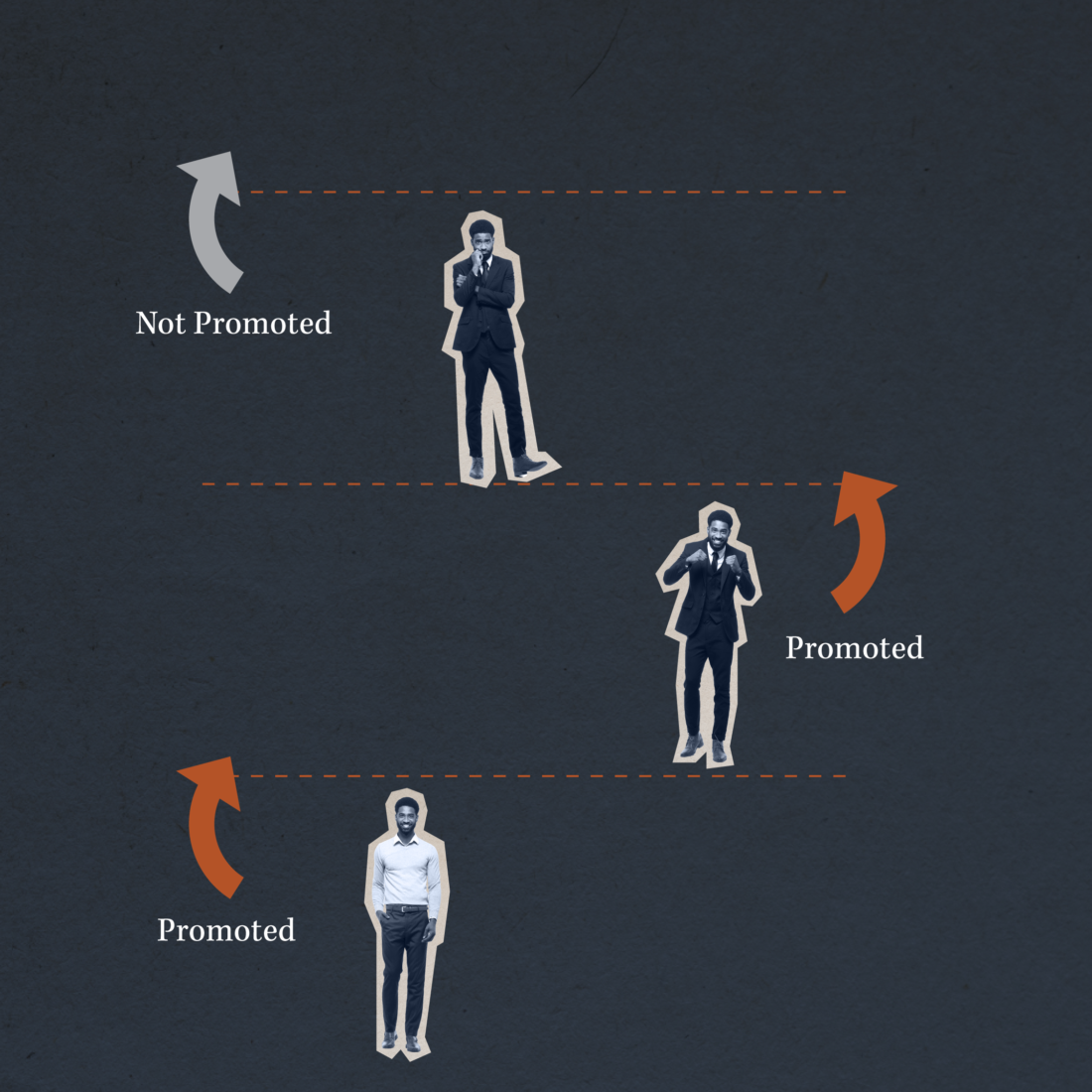Related:
Guide to Executive Talent Mapping: Sports Quote Edition
The Peter Principle posits that members of a hierarchy are often promoted until they reach the level at which they are no longer competent.1 From an HR perspective, the troubling implications of this phenomenon are obvious. There are, however, ways that organizations can guard against it. What’s more, changes in the employment landscape may lead to the problem largely fixing itself. Let’s examine the theory.
What is the Peter Principle?
Way back in the 1960s, Canadian Professor Laurence J. Peter wrote a book detailing his observations about the nature of ‘respective incompetency’ and the negative results of poorly considered internal promotions.2
Peter noticed that when positions become available within a company, they’re often filled by a high performing individual from one step below. This is intuitively reasonable and does afford talented employees the opportunity to climb a rung up the corporate ladder, then, potentially, another and another. When does the climb stop? Often when the employee stops demonstrating competence. Therefore, the theory goes, employees tend to find a home one step higher than the position for where they are naturally suited. Or, as Peter put it, the cream, rather than rising to the top, rises ‘until it sours’.3
The results? Inefficient leadership, mismanagement, low morale, and poor employee retention. Not good!
Peter In a Nutshell

1. Do a good job.
2. Get promoted.
3. Do a good job and get promoted again (and so on).
4. Land in a position where you can’t excel.
5. Remain in place.
Overcoming the Peter Principle
How can companies avoid elevating poor managers? The root of the problem lies in promoting based on the wrong criteria.
As we’ve discussed in a previous blog post, soft skills are not the same as hard skills. While technical abilities may result in good performance, they are not necessarily indicative of management competency. In fact, a 2018 study indicates that the two may in fact have an inverse relationship.4
On the other hand, strong employees don’t grow on trees. Companies risk losing their all-stars if they don’t show them how much they’re valued. What’s the solution?
It’s important to recognize that pay increases don’t need to hinge on promotions. High functioning employees can be given salary bumps, bonuses, or other perks without being handed leadership responsibilities for which they may not be naturally inclined.
It’s also worth asking; what is a job promotion? New responsibilities and job titles can be tailored to the natural abilities and aspirations of valuable individuals. Performers can be tasked with performing more important tasks, with leadership roles being reserved for natural leaders.
Is the Peter Principle Becoming Obsolete?

Changes in the way we work are also having an impact on this faulty promotions paradigm. The Peter Principle is based upon a model where companies nurture talent and promote from within over the long term. While this model is still alive and well, it’s nowhere near as prominent as it once was.
“Over the past couple of decades, we’ve seen that long term employment relationships have really declined,” says Rebecca Paluch. The UBC Assistant Professor explained the changing dichotomy while participating in a Goldbeck HR report in 2021. “It’s not quite the foundation of the economy anymore. Organizations won’t expect employees to stay forever and, similarly, employees won’t expect that their organization can guarantee long term employment.”
Younger workers in particular are keen to switch jobs, with one study finding that Millennials will stay at their jobs for an average of only 2.75 years.5 For them, the path to the top is less of a corporate ladder and more of a parkour exercise where leaping between organizations is not only accepted, but expected.
While such movements can cause big headaches for companies, it also affords them an opportunity to make better placements. Rather than filling managerial positions through a conveyor belt approach, companies can look elsewhere to find talent who have demonstrated aptitude in a comparable position.
“That’s more of a shared burden on both the organization and the employee,” says Paluch. “Whereas previously there was kind of more of a burden on organizations to guarantee that continuous growth.”
Sharing the Responsibility of Employee Development
Skills development is also a mutual responsibility. Companies are still utilizing training and education programs to both develop and retain employees, but individuals are also taking the lead on their upskilling, charting their own upward mobility.
The company man or woman who spends their entire career with one organization is not extinct, but is endangered. While this may be old news, never have tenures within organizations, or even fields, been shorter.
Companies are adapting to this reality. Talented employees should, of course, be nurtured, but not at the expense of forcing a square peg into a round hole. Instead, companies should seek a comprehensive understanding of each employee’s skills, aptitudes and upsides, and chart their career path accordingly. The result will be better for all involved.




